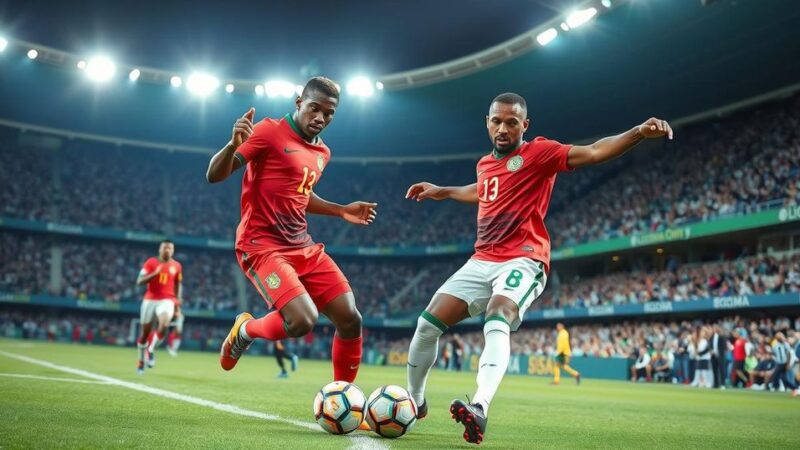South Africa triumphed over Argentina with a decisive 48-7 victory, showcasing their dominance in rugby. Under Rassie Erasmus, they have captured multiple major trophies, indicating a shift in their playing style. Key players like Cheslin Kolbe and Manie Libbok exemplify this evolution. The article discusses implications for future international rugby, particularly regarding financial dynamics affecting teams. South African rugby enjoys cultural significance, with winning remaining the central focus for the squad.
South Africa’s recent dominance in rugby is underscored by their victory over Argentina, securing a decisive 48-7 win that showcases their prowess on the international stage. With Rassie Erasmus at the helm, the Springboks have captured every significant southern-hemisphere trophy, including two World Cups and a British & Irish Lions series. As questions arise about their stature in comparison to the legendary All Blacks, such inquiries reflect the remarkable evolution of this team and the heights they may yet achieve. The match against Argentina was characterized by classic Springbok attributes, particularly in the scrum, where Ox Nché stood out, earning penalties with ease. Veteran Eben Etzebeth, now holding a record 128 caps for South Africa, delivered a performance that was both emotional and commanding. Pieter-Steph du Toit continued to impress, dominating the breakdown and contributing significantly with two tries. However, it was the varied and precise offensive strategies displayed in the first half that signify a significant advancement from previous Springbok teams; rather than simply overpowering their opponents, this iteration possesses the ability to dissect defenses with surgical accuracy. Key players such as Cheslin Kolbe and Manie Libbok further exemplify this evolution. Kolbe, recognized as one of the world’s best wingers, provides constant threat on the right flank. Libbok’s unique style, characterized by innovative passing despite inconsistency in goal-kicking, illustrates the dynamic transformations taking place within the squad. Despite a dip in intensity after half-time, South Africa’s ability to maintain their lead reflects their competitive nature. Conversely, Argentina, under Felipe Contepomi’s guidance, has shown commendable resilience and adaptability, transforming perceived weaknesses into strengths. The current landscape of rugby, particularly with the financial future of international competitions in question, leaves some uncertainty regarding the long-term competition among teams like the Wallabies and Pumas, who may feel marginalized. Rugby in South Africa holds a revered status; Etzebeth described it as a “religion” within his homeland, where players are celebrated as heroes. Nonetheless, the primary aim remains victory. Erasmus has emphasized the importance of prioritizing consistent achievement, and with the blend of traditional strength and contemporary skills within the squad, South Africa is poised for significant success in the forthcoming European tour, with aspirations of conquering England, Scotland, and Wales on the horizon.
The article discusses South Africa’s recent rugby achievements and their victory over Argentina in the Rugby Championship. It highlights the Springboks’ dominance in southern-hemisphere rugby, winning prestigious trophies including the World Cup and the British & Irish Lions series under coach Rassie Erasmus. The piece emphasizes the evolution of the team, showcasing players who combine physical strength with skillful play, contrasting with their previous strategies. It also touches upon the implications of financial pressures on international rugby matches and the potential marginalization of some teams.
In summary, South Africa’s rugby team has demonstrated unparalleled prowess by complementing their traditional strengths with modern strategies and skilled players. Their recent triumph over Argentina is a testament to their capability and ambition, positioning them for continued success in the upcoming European tour. The evolving dynamics of international rugby highlight both the challenges and the potential for growth within the sport as financial factors increasingly influence team participation and competition.
Original Source: www.theguardian.com







